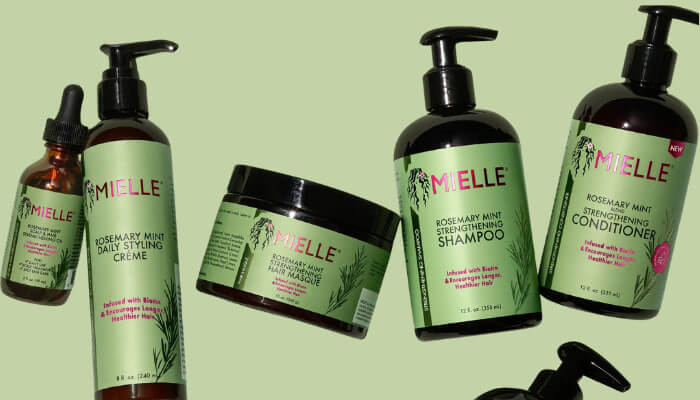The beauty community has come alive recently due to the Mielle lawsuit. Mielle Organics is a popular hair care brand that has left its users and others in shock. Concern has arisen over reports that some of its best-selling hair care products might be causing hair loss. Imagine how concerned you would be if the very products you bought for hair care were responsible for damaging your hair’s health?
So, in this article, we will discuss the details of the Mielle Organics lawsuit and help you understand the current status, and help answer the question on everybody’s mind: “Does Mielle cause hair loss?”, and if the “Mielle hair oil causes hair loss?” That and more in the article ahead.
The Company Behind the Mielle Lawsuit
It was the year 2014 when Monique Rodriguez founded Mielle Organics. His products were received well by consumers, especially in the black hair community. Its formulas were plant-based and promised nourishing ingredients. The company had a major event in 2023 when the retail megagiant, P&G, acquired Mielle. The plan was to bring the brand’s products to a much wider audience base while keeping its plant-based USP.
How the Mielle Lawsuit Began
It was the Gomes V. Mielle Organics LLC et al. class action lawsuit, which was filed in the US District Court for the Northern District of Illinois, that started the whole thing off. There were complaints against Mielle that they failed to warn the users of their popular products that could be causing a hair loss side effect. The product in question was the Rosemary Mint Scalp & Strengthening Hair Oil. The issue highlighted was how the product was marketed as “safe and effective”, but the risk of hair loss was never mentioned.
Key Allegations in the Mielle Organics Lawsuit
1. Omission of Risk:
The Mielle lawsuit argues that the company did not test whether its ingredients could cause hair loss. The company had the obligation to ensure the highest quality ingredients, but they failed. The complaint further said that if proper tests had been run, then the harmful ingredients could have been identified before the sales began.
2. False Advertising:
The complainants were especially disappointed with the fact that Mielle and P&G both misrepresented the facts. The Rosemary Mind Hair oil was marketed as safe, and benefits like stronger, nourished hair were promised without the glaring risk of potential hair loss.
3. Consumer Harm:
There were reports from many states about customers who had clumps of hair falling out after regular use. That experience caused them a lot of emotional distress and financial loss as they sought treatment and alternatives.
Which Products Are at Issue?
The questionable products mentioned in the Mielle lawsuit are the Rosemary Mint Scalp & Strengthening Hair Oil and, later on, other products like Rosemary Mint Strengthening Shampoo, Rosemary Mint Strengthening Conditioner and other rosemary-mint-infused products in the line were also mentioned in the lawsuit.
Does Mielle Cause Hair Loss? What the Science Says
Does Mielle cause hair loss, or is it different from case to case? Dermatologists and cosmetic chemists note that:
- Allergic Reactions: Breakage and shedding can be caused in a small set of users due to the rosemary essential oil. The oil can trigger scalp irritation or allergic responses.
- Formula Changes: Many users who have used the products for a long time think that after P&G’s acquisition, the formula may have changed slightly. That could have also increased the risk. However, Mielle has denied any changes.
- Counterfeit Products: There are reports online about fake Mielle products being sold. These can contain harsh ingredients that can make matters worse.
As such, there isn’t a proper scientific study that proves that Mielle products cause hair loss. However, the anecdotes from various users and the Mielle Organics lawsuit should prompt us to be concerned and seek further investigation of the matter.
Does Mielle Hair Oil Cause Hair Loss? Consumer Tips
Does Mielle hair oil cause hair loss? Here is how you can test if it does for you:
- Patch Test: A patch test can help you test new products safely before you apply them regularly. Just use a small quantity of the product on your inner wrist and observe how your body reacts. Any redness, itchiness or irritation is not a good sign.
- Check Ingredients: Some ingredients are harsh on sensitive skin. Even if they are natural, they can irritate and dry your scalp. Check for these: alcohol denat, sulfates, or fragrances, which are common culprits.
- Monitor Usage: If a new product causes some reaction, stop using it immediately. You should then check with your dermatologist, and he should be able to guide you on what to do next.
- Verify Authenticity: When your products come from trusted and official sources, there are lower chances of any unexpected reactions.
The Broader Context: Social Media and Reformulation Rumours
It wasn’t the Mielle lawsuit that shed light on this issue. There were many social media videos going viral in late 2022 to early 2023 that were bringing awareness to the issue. TikTok creators made videos showing sudden hair breakage after using Mielle’s rosemary-mint line of products. Now, some users also said that the creators had been paid by other competitors as a form of a smear campaign, but nothing has been proven as of yet.
Balancing Safety with Self-Care
Hair is important. Hair health is also important. Even something as trivial as a bad hair day can affect us so much. Hair care is, therefore, a deeply personal subject. Investigations about the Mielle Organics lawsuit will continue, but do not forget that your well-being matters and should take a higher priority. Even as you wait for the legal outcomes, if you are one of the affected users, you should seek professional help to improve your scalp health.
Conclusion
The Mielle lawsuit brings to light the importance of transparency when it comes to beauty marketing. Mielle Organics may have perfected natural, plant-based hair care products, but there are still allegations of hair loss risks that ha+-ve not been acknowledged by the company yet. Such things do shake the consumer trust.




